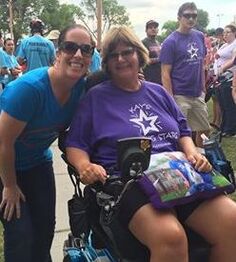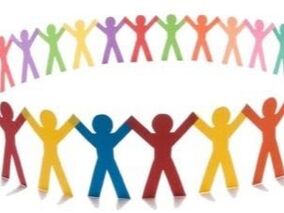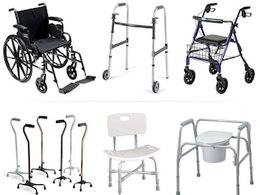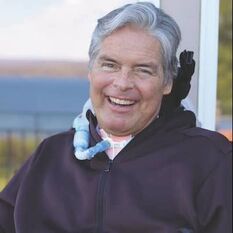People Living with ALS |
|
|
Dear People Living with ALS,
Thank you for visiting Your ALS Guide. We hope you will find this website helpful as you navigate the many challenges that ALS presents. During my 12 years serving as Director of Care Services for The ALS Association Arizona Chapter, I worked with thousands of people living with ALS. I sat down at kitchen tables and on living room couches to learn about each family’s challenges. |
|
I did my best to make individualized recommendations that would help my PALS (people living with ALS) stay safe, remain independent, and know what resources were available to them.
I also served on four ALS clinic teams and facilitated hundreds of in-person support groups for PALS and caregivers. Even though I didn’t know what it was like to live with ALS, I did my best to learn, understand, and do everything I could to help.
As I was leaving The ALS Association, the family of one of my patients asked if I’d be interested in taking my real-world knowledge and shaping it into a practical, user-friendly website that speaks directly to you—as if I were sitting in your home. The result is Your ALS Guide. Our goal is to empower you to do the things that are in your control to give you a better quality of life.
I understand that your diagnosis is life-changing and that it may not be easy to adjust to your “new normal.” Yet, I know that it is still possible to live a life that includes joy, purpose, meaning, and connection. The way you choose to live with ALS makes all the difference in the world.
Below you will find the main advice that I used to tell my PALS.
My best,
Kim Hughes
Content Director
Your ALS Guide
I also served on four ALS clinic teams and facilitated hundreds of in-person support groups for PALS and caregivers. Even though I didn’t know what it was like to live with ALS, I did my best to learn, understand, and do everything I could to help.
As I was leaving The ALS Association, the family of one of my patients asked if I’d be interested in taking my real-world knowledge and shaping it into a practical, user-friendly website that speaks directly to you—as if I were sitting in your home. The result is Your ALS Guide. Our goal is to empower you to do the things that are in your control to give you a better quality of life.
I understand that your diagnosis is life-changing and that it may not be easy to adjust to your “new normal.” Yet, I know that it is still possible to live a life that includes joy, purpose, meaning, and connection. The way you choose to live with ALS makes all the difference in the world.
Below you will find the main advice that I used to tell my PALS.
My best,
Kim Hughes
Content Director
Your ALS Guide
Note: If you were diagnosed with ALS in the last few months, you may want to start by visiting our Newly Diagnosed Guide.
|
Sign up for our free newsletter to stay up-to-date on new content, equipment, ALS news, resources, and more.
|
Kim's Advice for Living with ALS
- Take things one day at a time. You don’t need to read everything you can find about ALS or know everything right now. Follow the guidance of your professional team and use a few trustworthy online resources.
- Don’t let ALS take over your entire life. You are much more than this disease. It is important to stay engaged in the world and do and think about things that don’t involve ALS.
- Accept support. You cannot do this on your own. And neither can your primary caregiver. Even if you’ve always been independent, you need to let people help.
- Develop your local support team. Beyond professionals, identify what support you have and who else can get involved. Communicate clearly about what you need and find out what others can offer.
- Care for your caregiver. Remember that this is not easy for either of you. Be kind. Give your caregiver permission to take some personal time to recharge.
- Take good care of yourself. By eating well, sleeping well, and taking care of your body, you can improve your quality of life and have more energy for the things you love to do.
- Take charge of your care. You are ultimately in charge of your own care. Communicate with your ALS clinic and local organization. Don’t hesitate to ask questions, even between visits.
- Stay ahead of the disease. Attending an ALS clinic and following your medical team’s recommendations will help you plan ahead. Learn about medical equipment and how to use it before you really need it.
- Be smart with your resources. Learn about your health insurance options. Locate and utilize all the resources available to you. Don’t spend money on random things without consulting your ALS clinic team.
- Connect with people who understand you. Try attending an ALS support group, either virtual or in your area. Only people living with ALS can begin to understand what you’re going through every day.
|
|
|
|
“ALS is overwhelming for all of us. If you're crippled by anxiety or depression, don't be afraid to seek professional help, and don't wait to get help! I know mental health has a stigma. As a former NFL player, I used to scoff at the thought of my own mental health problems. Like everyone else who thinks seeking help is a weakness, I was wrong. It actually takes strength to seek help because of the stigma.”
— Tim Green, Former NFL player living with ALS |
Interview with Jeremy Van Tress
|
Jeremy is a US Army veteran who earned a PhD in social work after his ALS diagnosis. He then started a nonprofit to provide online support for people living with ALS. In his interview with Your ALS Guide, Jeremy tells his story, shares how he's coped, and offers advice to others. See interview.
|
|
For Military Veterans Living with ALSALS is considered a service-connected disease, which means you will likely be eligible for special service-connected benefits. Learn more.
|












